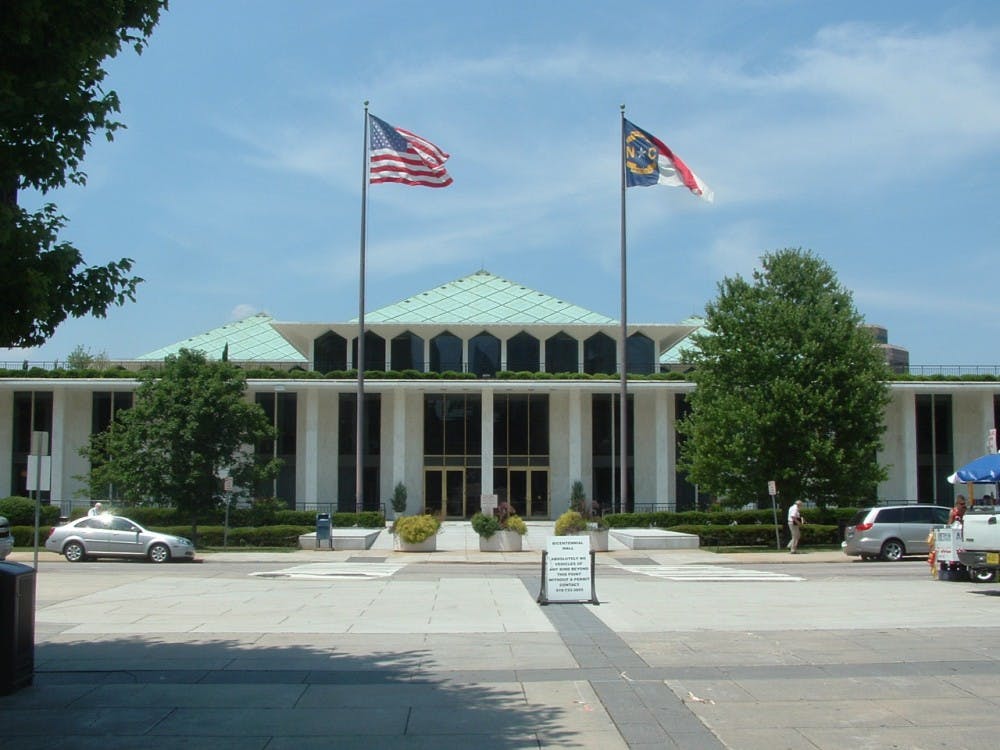While the semester comes to a close and students return home, the N.C. General Assembly is about to begin session.
The April and May calendars for the General Assembly are already available online. Some of the committees that will meet at this time plan to discuss topics ranging from disaster relief to judicial reform.
North Carolina operates under a part-time legislature system, meaning legislators typically have another job when the General Assembly is not meeting. Even years, such as 2018, tend to be shorter sessions.
“If they want to do more than a short session, then there has to be special sessions,” said Jacob Smith, a political science graduate teaching assistant at UNC who focuses on American and state politics.
Smith said the 2016 sessions were more tumultuous than usual because House Bill 2 was passed and the General Assembly limited the governor's power during that time.
The House and Senate will convene May 16. While most of the summer agenda has not been publicly released, policy analysts within North Carolina have a good idea of what issues will be the most important for the General Assembly.
“The budget is always the most important bill that the legislature passes every year,” said Rob Schofield, director of NC Policy Watch.
Once the budget is passed, it is typically in effect for two years. These bills are especially important in recession years where financial projects can be misconstrued, but more recently these bills have more accurately portrayed the correct amount of government spending.
Schofield said there is also a chance the General Assembly would propose potential constitutional amendments to go on the ballot. Some of these issues include introducing voter ID laws as well as lowering the state income tax.




